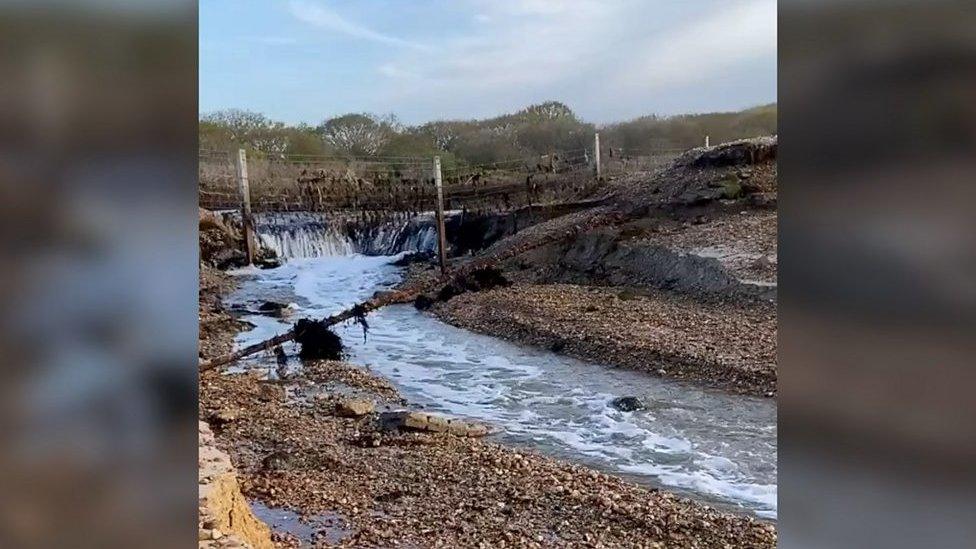'An explosion... a torpedo track racing towards us'
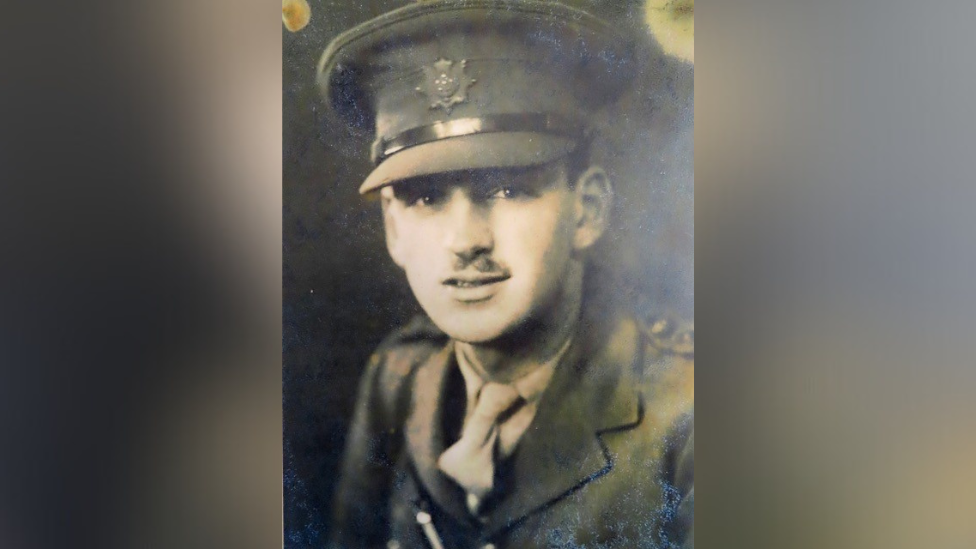
Waf Maynard kept a diary of his experience of the D-Day landings
- Published
The daughter of a lieutenant who took part in the D-Day landings has recounted his memoirs ahead of the 80th anniversary.
Lt (later Major) Waf 'Austin' Maynard, who lived in Cambridge, took part in the landings on 6 June 1944.
In his memoirs, he recalled the constant danger and described a near miss to the ship he was on after a destroyer was hit.
His daughter, Katie Maynard, shared his story, adding that it was important to remember the many soldiers, like her father, who were "involved in momentous events".
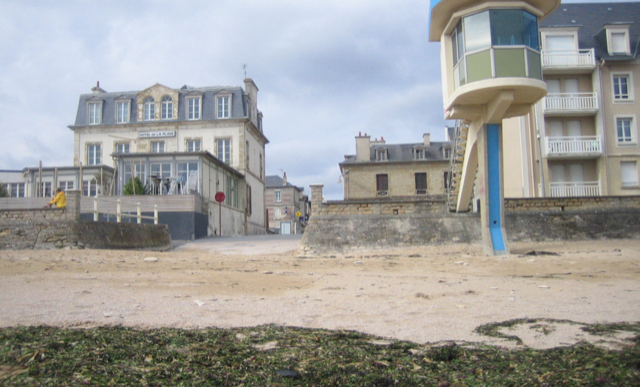
Waf 'Austin' Maynard landed on Lion-sur-Mer beach
"My father joined the Royal Hampshire Regiment before the war... and joined the preparations for the invasion of Europe by 1943," said Ms Maynard.
He crossed on the HMS Largs command ship. He wrote:
‘There was a rough sea and you could see grey misty ships on all sides. We all seemed to be moving very slowly. Some of the smaller landing craft were pitching and tossing.
‘No sooner had the sound of the explosion reached us, than I noticed a torpedo track racing towards us - it seemed towards me personally - coming from the direction of the sinking destroyer…Luckily it missed our stem by a few feet or so.’
'I saw my first dead soldier'
After landing on Sword Beach in the morning of 6 June he wrote:
‘Every so often the battleships and cruisers let off their heavy guns and the noise of an express train went over our heads. …. As we went over the side a Naval officer handed each of us officers a bottle of gin. We sped quickly to the beach.
'I landed on Sword beach by jumping ashore and not even getting my feet wet! Mortar shells were still landing on the beach and I saw my first dead soldier.
'We dashed across the beach which was still being shelled by Germans.
'Then it was a question of following white tape. The white tape marked paths through the minefields which had been laid by the Germans.
'These paths had been cleared by the Royal Engineers.’
His daughter recalled that "somehow", through a constant barrage, he arrived at the meeting point.
He remained for six weeks and later moved through Normandy, Paris, Brussels, Holland and into Germany.
He was invalided back to England in March 1945 and lived in Cambridge for the final 20 years of his life.
"This year will be very special," said Ms Maynard. "It is a time to remember the many soldiers and their families affected by the events as well as the civilians who endured the heavy fighting, devastation and horrors of death.
"My father was one of many but for all those who took part, they each have a story and were all involved in momentous events."
Follow Cambridgeshire news on Facebook, external, Instagram, external and X, external. Got a story? Email eastofenglandnews@bbc.co.uk, external or WhatsApp us on 0800 169 1830
Related topics
More Like This Story
- Published15 May 2024
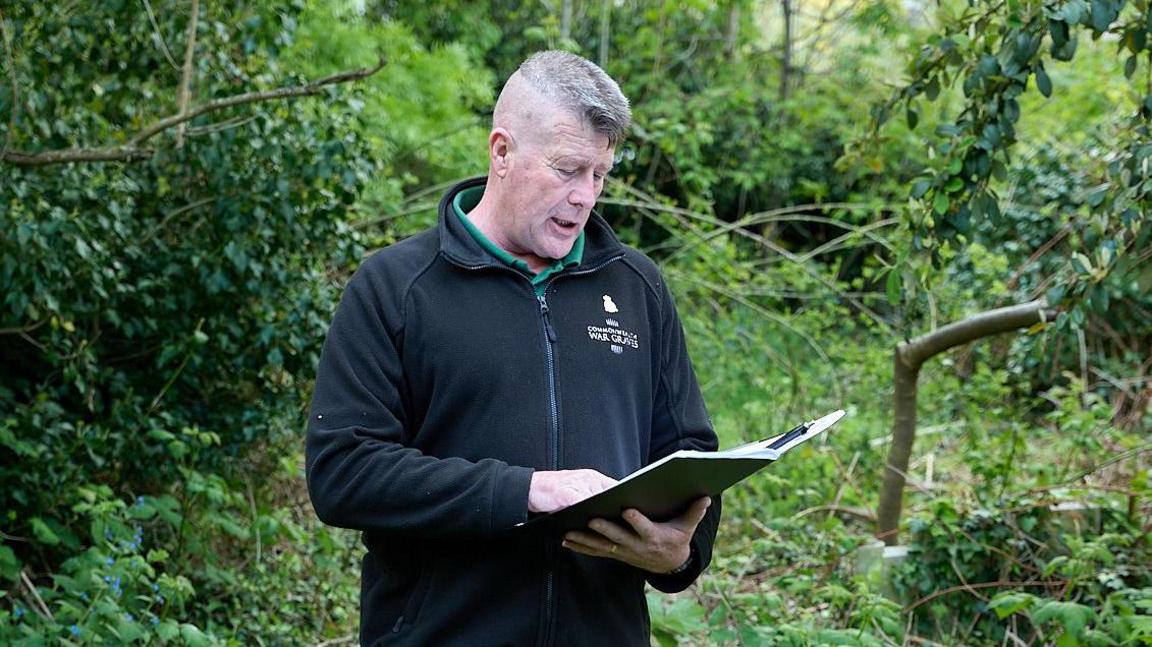
- Published17 May 2024
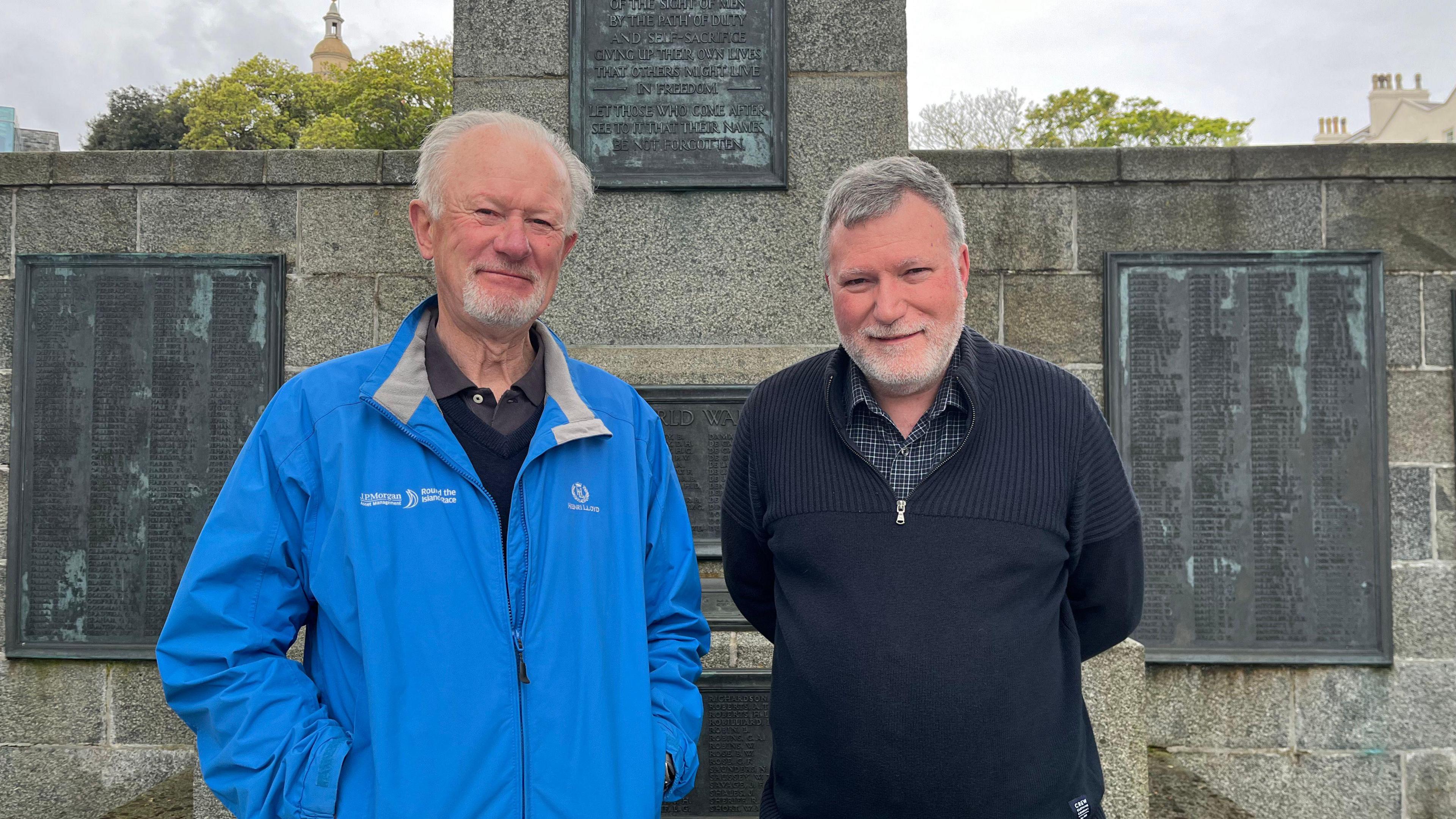
- Published6 May 2024
